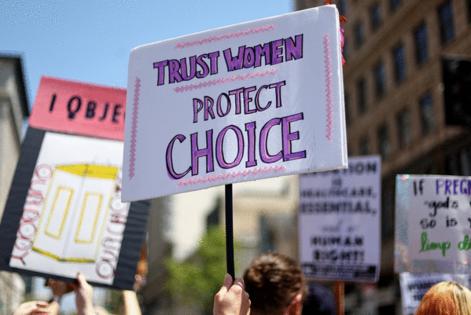At stake in mifepristone case: Abortion, FDA's authority and return to 1873 obscenity law
Published in Political News
Lawyers from the conservative Christian group that won the case to overturn Roe v. Wade are returning to the U.S. Supreme Court on Tuesday in pursuit of an urgent priority: shutting down access to abortion pills for women across the country.
The case challenges the FDA’s regulation of mifepristone, a prescription-only drug approved in 2000 with a stellar safety record that is used in 63% of all U.S. abortions.
Viewed across decades of anti-abortion activism, the case brought by the Alliance Defending Freedom represents a “moonshot” couched in technical arguments about pharmaceutical oversight and the resuscitation of an 1873 anti-obscenity law. A victory would lay the groundwork for a de facto nationwide abortion ban.
Abortion is illegal in 14 states, but abortion pills have never been more widely available.
During the COVID-19 pandemic, the FDA suspended — and later formally lifted — the requirement that patients be at a health care facility when taking mifepristone, the first of two pills used in medication abortion. Physicians can now prescribe the drug online through telemedicine and pharmacies can dispense it through the mail.
“You don’t need to be handed the pill in the office,” said Linda Prine, a family medicine physician, sitting on a couch in her Manhattan apartment answering texts and calls from patients about abortion care.
“It’s very effective,” she said. “I don’t even have medications that are 98 to 99% effective. Our blood pressure medicines aren’t effective like that.”
Prine, a co-founder of the Miscarriage and Abortion Hotline, works with other doctors operating under New York state’s shield law to prescribe and send abortion pills to people across the country. A review of Prine’s call log, stripped of personal information, showed hundreds of requests for pills from Texas, Louisiana, Tennessee and other states where it is illegal for women to stop a pregnancy.
Anti-abortion groups unsuccessfully petitioned the FDA at least twice before, in 2002 and 2019, to revoke mifepristone’s approval and curtail its availability. But in November 2022, following its victory in overturning federal abortion rights, the Alliance Defending Freedom filed a federal lawsuit in Amarillo, Texas, claiming the FDA’s safety review of mifepristone was flawed.
U.S. District Judge Matthew Kacsmaryk, who was appointed by President Donald Trump and openly opposes abortion, ruled to invalidate the FDA’s approval of mifepristone. An appeals court later said the drug should remain available, but it reinstated restrictions, including prohibitions on telehealth prescriptions and mailing the medication. That ruling was put on hold while the Supreme Court considers the case.
...continued
©2024 Kaiser Health News. Visit khn.org. Distributed by Tribune Content Agency, LLC.










Comments